
Completion of the Human Genome Project will make possible a staggering array of new medical technologies, including new diagnostic and screening tests for inherited disorders, gene therapies, and the ability to manipulate a person's inherited, non-disease traits. Most of the attention given to the social implications of these technologies has focused on their potential to harm the individual, for example, by denying employment or insurance.
This book explores instead the potential harm to society if we unfairly distribute the enormous benefits of genetic technologies. The resulting division of society into genetic haves and have-nots would undermine the basic foundation of Western democratic society—the belief in equality of opportunity.
This book explains, in terms that can be understood by the general reader, how DNA works, what the Human Genome Project is, what these genetic technologies are and what they promise, and how they could disrupt our democratic society.
In an original contribution to the literature, the book then discusses the alternatives for avoiding the creation of a genetic underclass, ranging from halting the Human Genome Project itself to making genetic technologies available without regard to ability to pay. The authors' provocative conclusion is that a lottery in which everyone has a chance to obtain access to these technologies is the only feasible option.
This book will be of interest to anyone who wishes to learn more about the Human Genome Project and the genetic revolution that it will create, as well as those who already are familiar with the project and are concerned about the social consequences of its scientific developments.
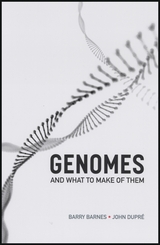
For the nonscientist, the claims and counterclaims are dizzying—what does it really mean to understand the genome? Barry Barnes and John Dupré offer an answer to that question and much more in Genomes and What to Make of Them, a clear and lively account of the genomic revolution and its promise. The book opens with a brief history of the science of genetics and genomics, from Mendel to Watson and Crick and all the way up to Craig Venter; from there the authors delve into the use of genomics in determining evolutionary paths—and what it can tell us, for example, about how far we really have come from our ape ancestors. Barnes and Dupré then consider both the power and risks of genetics, from the economic potential of plant genomes to overblown claims that certain human genes can be directly tied to such traits as intelligence or homosexuality. Ultimately, the authors argue, we are now living with a new knowledge as powerful in its way as nuclear physics, and the stark choices that face us—between biological warfare and gene therapy, a new eugenics or a new agricultural revolution—will demand the full engagement of both scientists and citizens.
Written in straightforward language but without denying the complexity of the issues, Genomes and What to Make of Them is both an up-to-date primer and a blueprint for the future.
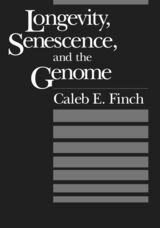
To enhance gerontology's focus on human age-related dysfunctions, Caleb E. Finch provides a comparative review of all the phyla of organisms, broadening gerontology to intersect with behavioral, developmental, evolutionary, and molecular biology. By comparing species that have different developmental and life spans, Finch proposes an original typology of senescence from rapid to gradual to negligible, and he provides the first multiphyletic calculations of mortality rate constants.
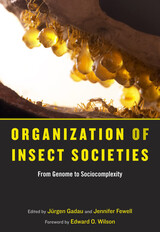
In this landmark volume, an international group of scientists has synthesized their collective expertise and insight into a newly unified vision of insect societies and what they can reveal about how sociality has arisen as an evolutionary strategy.
Jürgen Gadau and Jennifer Fewell have assembled leading researchers from the fields of molecular biology, evolutionary genetics, neurophysiology, behavioral ecology, and evolutionary theory to reexamine the question of sociality in insects. Recent advances in social complexity theory and the sequencing of the honeybee genome ensure that this book will be valued by anyone working on sociality in insects. At the same time, the theoretical ideas presented will be of broad-ranging significance to those interested in social evolution and complex systems.
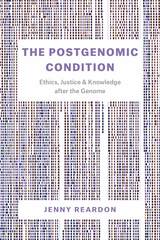
Drawing on more than a decade of research—in molecular biology labs, commercial startups, governmental agencies, and civic spaces—Reardon demonstrates how the extensive efforts to transform genomics from high tech informatics practiced by a few to meaningful knowledge beneficial to all exposed the limits of long-cherished liberal modes of knowing and governing life. Those in the American South challenged the value of being included in genomics when no hospital served their community. Ethicists and lawyers charged with overseeing Scottish DNA and data questioned how to develop a system of ownership for these resources when their capacity to create things of value—new personalized treatments—remained largely unrealized. Molecular biologists who pioneered genomics asked whether their practices of thinking could survive the deluge of data produced by the growing power of sequencing machines. While the media is filled with grand visions of precision medicine, The Postgenomic Condition shares these actual challenges of the scientists, entrepreneurs, policy makers, bioethicists, lawyers, and patient advocates who sought to leverage liberal democratic practices to render genomic data a new source of meaning and value for interpreting and caring for life. It brings into rich empirical focus the resulting hard on-the-ground questions about how to know and live on a depleted but data-rich, interconnected yet fractured planet, where technoscience garners significant resources, but deeper questions of knowledge and justice urgently demand attention.
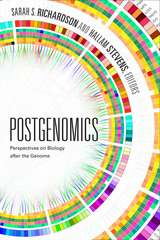
Contributors. Russ Altman, Rachel A. Ankeny, Catherine Bliss, John Dupré, Michael Fortun, Evelyn Fox Keller, Sabina Leonelli, Adrian Mackenzie, Margot Moinester, Aaron Panofsky, Sarah S. Richardson, Sara Shostak, Hallam Stevens
READERS
Browse our collection.
PUBLISHERS
See BiblioVault's publisher services.
STUDENT SERVICES
Files for college accessibility offices.
UChicago Accessibility Resources
home | accessibility | search | about | contact us
BiblioVault ® 2001 - 2024
The University of Chicago Press









